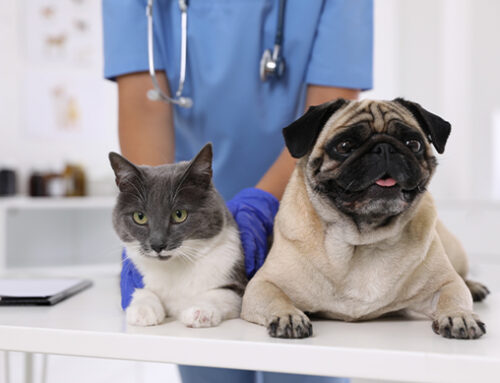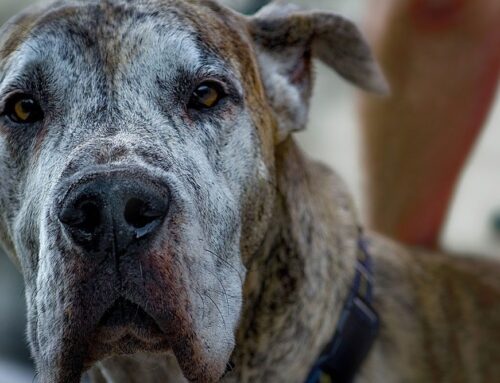Dental health is a crucial yet often overlooked aspect of pet care. Poor oral hygiene can lead to pain, infections, and even systemic health problems that affect vital organs. At Fort Mill Animal Hospital, we emphasize the importance of regular dental check-ups and preventive care to maintain long-term health and comfort for pets.
By addressing dental issues early, pet owners can prevent costly treatments, unnecessary pain, and serious health complications.
Consequences of Neglecting Dental Care in Pets
Development of Periodontal Disease
Periodontal disease is one of the most common and preventable health conditions in pets. It begins with plaque buildup and, if untreated, progresses to gingivitis (gum inflammation) and later periodontitis, which can cause irreversible damage, including:
- Gum recession and infection
- Tooth loss and bone deterioration
- Bacteria entering the bloodstream, impacting the heart, liver, and kidneys
For more information on pet dental care and disease prevention, visit the AVMA’s Pet Dental Care Guide.
Tooth Loss and Its Effects on Nutrition and Behavior
When pets lose teeth due to decay or infection, their ability to chew food properly is compromised. This can result in:
- Nutritional deficiencies due to difficulty eating hard kibble
- Weight loss and digestive issues from improper chewing
- Behavioral changes, including food avoidance, irritability, or aggression due to pain
If your pet is showing signs of difficulty eating, drooling, or avoiding food, schedule a dental exam at Fort Mill Animal Hospital.
Pain and Discomfort Associated with Dental Disease
Dental pain in pets is often overlooked because animals instinctively hide discomfort. Common signs of oral pain include:
- Pawing at the mouth or rubbing the face
- Reluctance to chew or favoring one side of the mouth
- Excessive drooling, sometimes tinged with blood
- Bad breath (halitosis), indicating bacterial infection
Ignoring dental pain can lead to chronic stress, reduced quality of life, and behavioral changes.
Systemic Health Risks from Poor Dental Hygiene
Oral bacteria from untreated dental infections can enter the bloodstream, leading to bacteremia, which increases the risk of:
- Heart disease (endocarditis) and circulatory issues
- Liver infections from filtering bacteria-laden blood
- Kidney dysfunction, impacting waste filtration and overall health
Preventing dental disease is about more than clean teeth—it’s about protecting your pet’s overall health. Learn more about the connection between dental and systemic health at AAHA’s Healthy Mouth, Healthy Pet Guide.
Preventive Measures and Treatment Options
Regular Dental Check-Ups at Fort Mill Animal Hospital
Routine veterinary dental exams help detect early signs of disease, allowing for timely intervention. Our comprehensive dental evaluations include:
- Oral exams to check for inflammation, tartar, and tooth fractures
- Dental X-rays to assess tooth and jaw health below the gumline
- Professional cleanings to remove plaque and tartar buildup
Meet our expert team dedicated to pet dental health at Fort Mill Animal Hospital.
At-Home Dental Care Tips for Pet Owners
While professional cleanings are essential, daily home care helps maintain oral health between vet visits. Visit the Veterinary Oral Health Council (VOHC) for veterinary recommended products that work.
Essential At-Home Dental Care Practices:
- Brushing Your Pet’s Teeth: Use a pet-specific toothbrush and toothpaste to prevent plaque buildup.
- Dental Chews and Toys: Certain chews help mechanically clean teeth and reduce tartar.
- Dental Diets and Water Additives: Some veterinary diets and oral rinses help prevent plaque formation.
For a step-by-step guide on brushing and at-home dental care, visit AAHA’s Pet Dental Care Guide.
Recognizing Dental Health Issues in Your Pet
Common Signs of Dental Problems
Early detection of dental disease is key to preventing severe complications. Look for:
- Persistent bad breath
- Swollen, red, or bleeding gums
- Visible plaque or tartar buildup
- Loose or missing teeth
If you notice any of these symptoms, schedule a dental evaluation at Fort Mill Animal Hospital.
How to Perform a Basic Dental Check at Home
Performing a quick oral check at home can help detect early dental issues.
- Lift your pet’s lips and examine the teeth and gums.
- Look for redness, swelling, or excessive tartar buildup.
- Check for bad breath, bleeding, or reluctance to open the mouth.
If your pet resists examination or appears in pain, consult a veterinarian immediately.
Frequently Asked Questions About Pet Dental Care
How often should my pet get a dental cleaning?
Most pets benefit from annual cleanings, though some breeds prone to dental disease may require more frequent care.
What are the best dental chews for my pet?
VOHC-approved dental chews are scientifically tested to reduce plaque and tartar. Look for options recommended by your veterinarian.
Can I use human toothpaste for my pet?
No. Human toothpaste contains fluoride and xylitol, which are toxic to pets. Always use pet-safe toothpaste.
Is dental disease painful for pets?
Yes. Untreated dental disease can cause chronic pain, infection, and difficulty eating, significantly impacting quality of life.
Encouraging Proactive Dental Care
Your Role in Preventing Dental Disease
As a pet owner, you play a vital role in maintaining your pet’s oral health. Prioritize:
- Annual veterinary dental exams
- Daily dental care through brushing, chews, or other VOHC-approved means
- Providing dental-friendly chews and food

When Dental Issues Become Emergencies
If your pet shows signs of severe pain, swelling, excessive drooling, or refusal to eat, they may have a tooth abscess or severe infection requiring immediate veterinary attention.
To schedule an appointment or learn more about preventive dental care, contact Fort Mill Animal Hospital.







Leave A Comment